Photo: Alexander Tamargo/Getty Images for Billboard
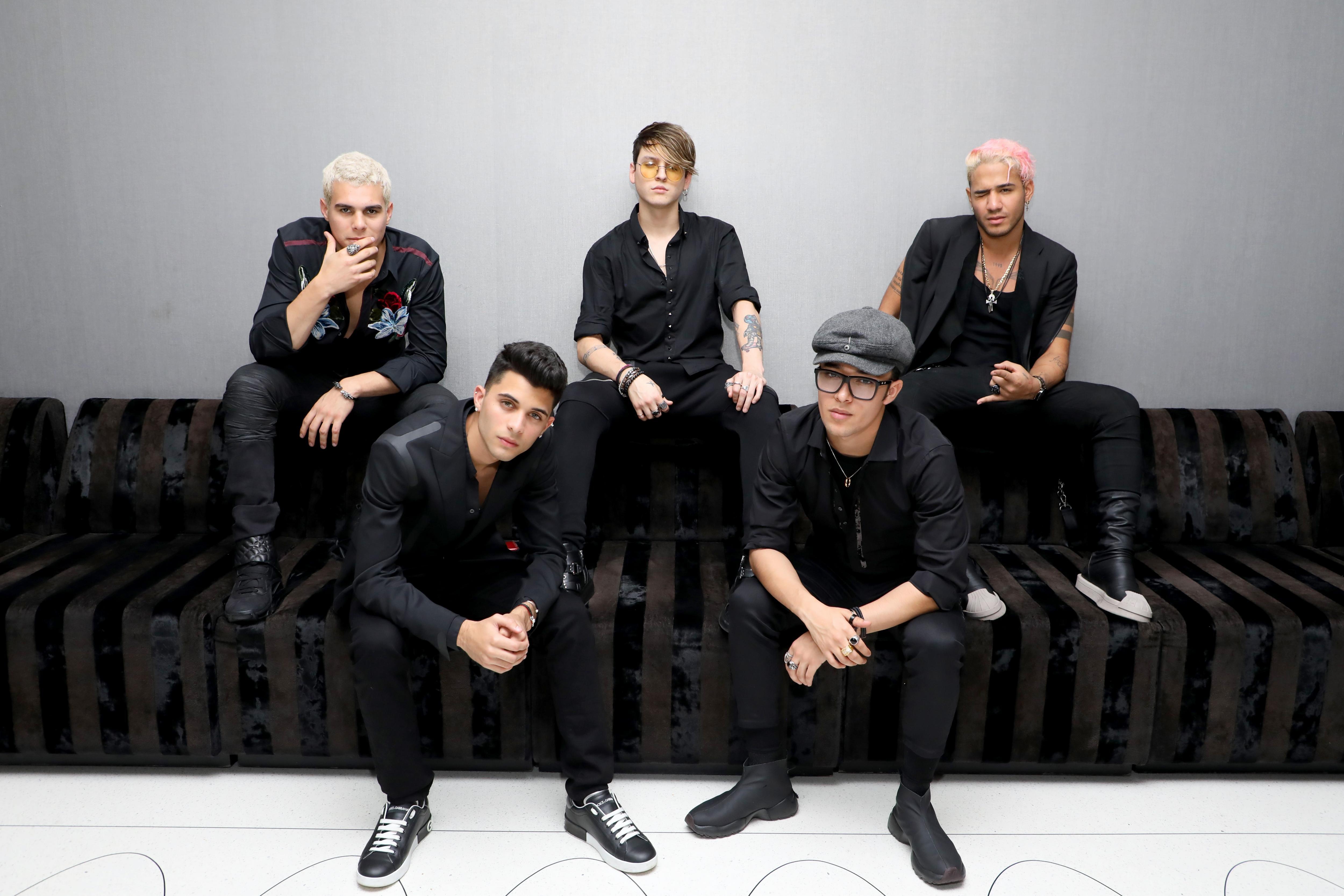
CNCO
news
CNCO, Karol G And Carlos Vives To Perform At 2019 Billboard Latin Awards
Bad Bunny, Ozuna and Banda Sinaloense MS de Sergio Lizárraga were other acts named for the show, airing live on April 25
Pop group CNCO, Latin GRAMMY winner Karol G and GRAMMY winner Carlos Vives are among the artists who have been announced as the first round of performers for the Billboard Latin Music Awards.
Bad Bunny, Ozuna and Banda Sinaloense MS de Sergio Lizárraga were other acts named for the night of April 25 airing live on Telemundo. The Billboard Latin awards happen at the end of Billboard's Latin Music Week (April 22–25) at the Venetian in Las Vegas.
Reggaeton artist Ozuna leads with the most nominations with 23, followed by J Balvin and Nicky Jam who both have 13. Trap artist Bad Bunny trails behind them with 11.
Karol G, who was named Best New Artist at the 2018 Latin GRAMMY Awards in November, is up for Billboard's Best New Artist award along with Natti Natasha. The urban Latin singer is also up for Female Artist Of The Year with Jennifer Lopez and Becky G in the same category.
"I want to share this award with the women that have done great things for the industry this year," she said during her Latin GRAMMY acceptance speech. "I want to share this award with them and with my colleagues that helped me get to where I am today."
Ozuna, J Balvin & More Pay Tribute To Daddy Yankee At Premio Lo Nuestro
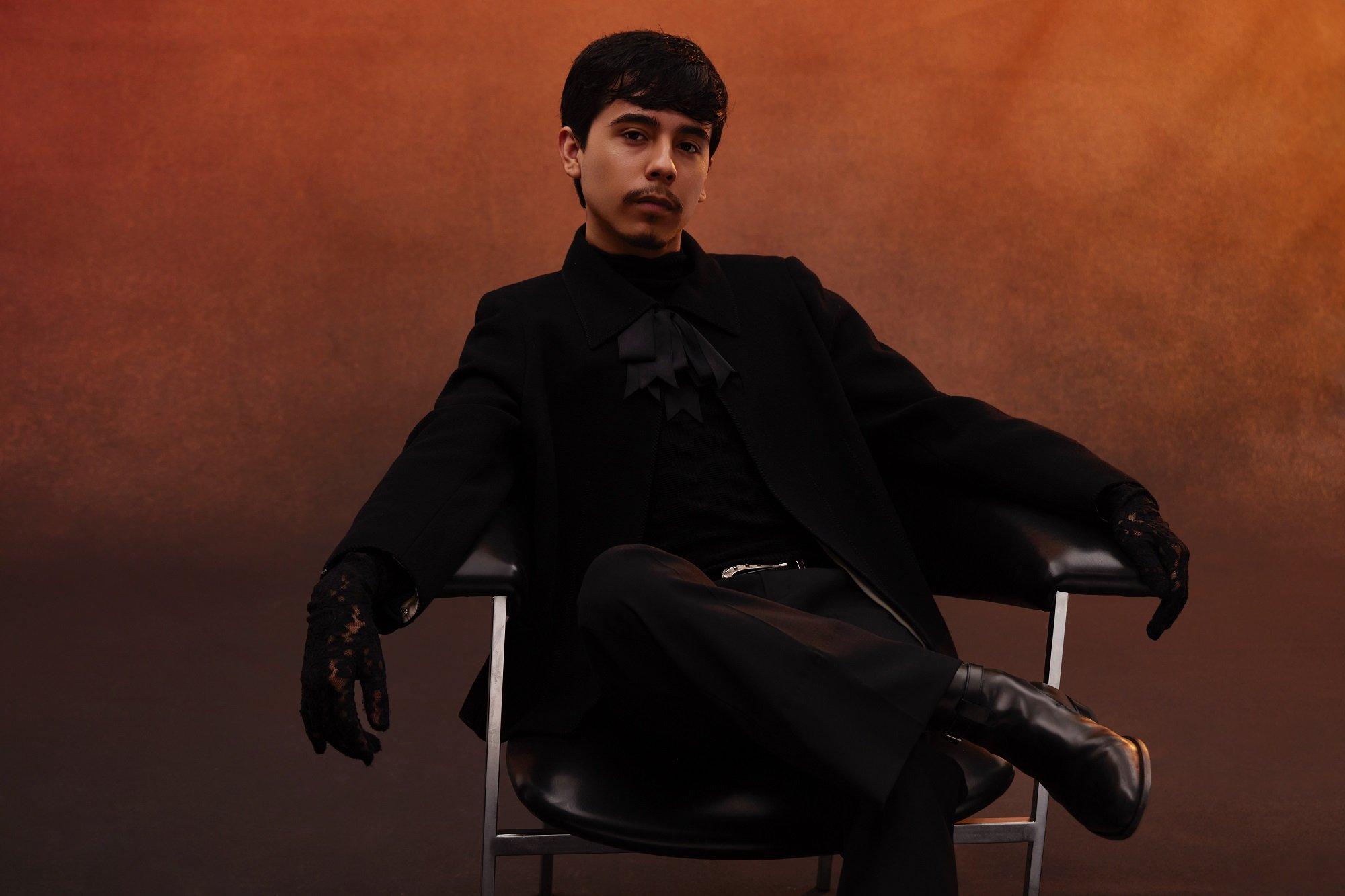
Photo: Le3ay Studio
interview
On 'Mirada,' Ivan Cornejo Redefines The Sound Of Sad Sierreño And Helps Fans Heal Through Music
Ivan Cornejo has always found solace in music. With his new LP, 'Mirada,' he wants his fans to experience that sense of belonging: "I write about emotions that everyone goes through or has been through."
Within the landscape of Música Mexicana, Ivan Cornejo is a rarity.
The 20-year-old California native stands out as one of the most intriguing acts in a genre represented by artists known for their flashy looks and music. Soft-spoken and warm, Cornejo's gentle demeanor effortlessly translates into his music and on-stage persona and musical productions.
Cornejo's songs and lyrics are far removed from the "corridos tumbados" that have taken over global charts. Fans have dubbed the Mexican American singer the "Gen Z therapist" because of his heartbreak-influenced lyrics and dexterity in creating the ethereal, melancholic sound known as sad sierreño.
With two albums under his belt, Cornejo makes his major label debut with Mirada, released on July 18 via Zaragoza Records / Interscope. The album features the wistful, sad sierreño sound that made Cornejo famous three years ago with "Está Dañada," a heart-wrenching ballad from his first LP, Alma Vacía (2021).
In the single, which has amassed over 270 million streams on Spotify, Ivan — then 17 — captivated listeners with powerful melodies accompanied by languid and nostalgic vocals, reciting verses filled with maturity beyond his years.
In Mirada, the Música Mexicana breakout star presents 12 solo songs inspired by summer nights, including singles "Aquí te Espero," "Donde Estás," "Baby Please," and "Intercambio Injusto." As with his previous productions, Cornejo makes heartbreak the central theme of his album while guitars and melodies reminiscent of alternative rock take center stage.
While the album doesn’t feature additional artists, Cornejo opened up to collaboration within the studio. The singer, used to collaborating solely with his producer, Frank Rio, encountered a challenge when bringing two additional creatives into the studio.
"The process for this new project was very different," Cornejo tells GRAMMY.com in a Zoom interview from Mexico City. "[Having other] creatives in the studio [resulted] a lot of learning. For example, my producer and I learned a lot from each other; we had constructive disagreements. We heard each other's opinions and learned a lot from this project."
The rising sad sierreño star discusses with GRAMMY.com the creative challenge of Mirada, the artistic boundaries he pushed along the way, the advantage behind bilingual songwriting, and the unexpected singer that influenced his lyrics.
This interview has been edited for length and clarity.
'Mirada' feels very personal, almost like a diary. How would you describe the album's overall theme and feeling?
While writing and recording this album, I wanted it to feel very personal, intimate, and gentle but with a little more uplifting sound.
I wanted the Mirada theme to feel like a nostalgic summer night. I want people to feel like they can play these songs on the beach, with friends, or alone in bed. I wanted it to feel a little euphoric.
The record showcases a blend of Latin and Anglo influences. Tracks like "Baby Please," "Dónde Estás," and "Aquí te espero" have a rock ballad feel. What inspired this fusion?
My influences come through a lot. I remember listening to my sister's and brother's music at eight while my parents would play classical regional Mexican music, like mariachi and corridos. As I grew up and started making music, it meshed into this sad sierreño and this funky Spanish alternative [genre].
The guitar is a staple in your sound. How did it become so central to your musical expression?
I started playing the guitar when I was about seven. I fell completely in love with the instrument. My mom tried to put me in violin classes, and I learned the instrument for a while, but the guitar kept winning me over. I kept learning more and more about the guitar, and around 12, I started learning songs by Radiohead, Arctic Monkeys and Tame Impala, and that's where my music emerged.
Mirada portrays the nostalgia around summer nights. How were those nights for you?
I spent it with my friends, making a bonfire and hanging out at the beach, pool, or jacuzzi.
Those nights when you just put your phone away and let the wind hit you and talk about your feelings, your thoughts are different, that kind of night.
What kind of music did you listen to on those summer nights?
Last summer, I listened to [Bad Bunny’s] Un Verano Sin Ti; [that album] was No. 1 on my playlist.
The year before, I listened to just any vibey music, like Arctic Monkeys, Tame Impala, or Radiohead, when I was alone. Cigarettes After Sex, I listened to them a lot during the summer when I was going to sleep. I always put them on.
You say that each track on this album is pushing the boundaries of your art. In what aspect are you breaking those barriers?
I go back to my last two albums [Alma Vacía and 2022’s Dañado,] and I want to grow as an artist and musician every time I listen to them.
Every time we enter the studio, [my producer] Frank Rio and I try our best to push the limits for ourselves and keep growing as artists. Vocally, musically, instrumentally, [we're] trying our best to make things sound even better.
How do you achieve that? Do you take vocal references from singers you like? Instrumentally, how do you break patterns within the genre?
Sometimes, when I feel something is missing from a song or I want to do something but don't know how to listen to a bunch of music that I think [is similar].
For example, each song on Mirada has a very different style. Depending on the style of the song, I’d listen to genres, styles, or certain ways that artists sing that match that song. Listening to those songs gives me ideas; it's like combining those ideas.
Vocally, for example, if I don't know how to sing a specific word or note, I listen to references and try to combine them in the best way possible.
Your lyrics show maturity beyond your years. Do you consider yourself an old soul?
Yes, I'm an old soul, for sure. When I was 7 years old, my brother would play Johnny Cash songs, and I was right behind him listening to them, downloading all the songs. I remember that for a while, I would go to sleep listening to Johnny Cash for an entire year.
Read more: Meet The Gen Z Women Claiming Space In The Regional Mexican Music Movement
Your song often references therapy sessions, and your fans even consider you the therapist of an entire generation. Do you feel that way?
I never realized my music had that effect. I would read comments saying, "Oh, he healed me" or, "I feel better now," or "he's my therapist, he's my comfort artist." That gave me a lot of joy because my music touched my fans in a very emotional way.
[Those comments] gave me the great idea of naming my [last] tour "Terapia." [Going to a concert] It's like you go to a therapist and you hear them. It all made sense. I hope my music is therapy for a lot of people.
Have you ever been to therapy yourself?
No, I have not. But... I should go. [Laughs.]
How do you articulate emotions clearly in your songs, especially without formal therapy experience?
I write about emotions that everyone goes through or has been through. And I try to write it in a way that sounds fresh and new. Also, melodies are very important because you can say something; depending on the melody, it can change your feelings. I try my best to make it hit the heart melodically and lyrically.
What about Spanish led you to express heartbreak in this language?
I was very inspired by Mexican music because there's something about the sound and the language that is very romantic. For example, there are some phrases in English that you might translate to Spanish, and they sound better in Spanish. Since my first language is English, I can translate them into Spanish and make them sound better and more emotional.
I try to write [songs first] in Spanish, but from time to time, when I get stuck, I start thinking in English. I try to think of just lyrics, and I'm like, okay, that's a cool lyric; how do I make it fit into this? And then, if it doesn't work, I'll try another one and another one until something works, or I get an idea in English, and it just works in Spanish.
[Being bilingual] gives you two perspectives, which helps a lot in the writing process.
What does it mean to you to represent Mexican American culture through your music?
It feels like you're put on a pedestal and have to be a role model. Being part of two cultures is a blessing, because you have two sides and perspectives. I'm very lucky to be here in Mexico and to learn about Mexican culture while still being from the United States and learning from American culture.
Did you feel you fit in when you were growing up?
No. At first, no. I was very shy.
Did music give you that sense of belonging?
Yeah, for sure. It gave me relief as I fit somewhere, and my voice was being heard. [It makes me feel] like I have support and people are [rooting for] me, and it helps me feel a bit understood.
As you enter your twenties and deal with growing fame, do you feel pressure being labeled as the voice of a generation?
I feel the pressure of being a role model, but it's a good kind of pressure. It helps me to make sure that I'm always giving my all. It's almost like motivation; I have to keep trying my best every time to be a role model.
It helps me to ensure that I'm always giving 100 percent and that it's like motivation, too. I have to keep trying my best each time to be a role model.
You sold out the mythical Houston Rodeo in April. How did singing to a crowd of 72,000 make you feel?
[Selena] and Johnny Cash are many of my favorite artists and artists that I look up to [have performed there]. It was a complete honor to play the Houston Rodeo and one of the scariest things I've ever done. [Laughs.]
It was scary at first. But when I realized that there were a good number of fans, I took out my in-ears, and I heard nearly the whole stadium singing back to me. It was such a beautiful and unforgettable night for me. It was a crazy experience.
The Latest News About Latin Music
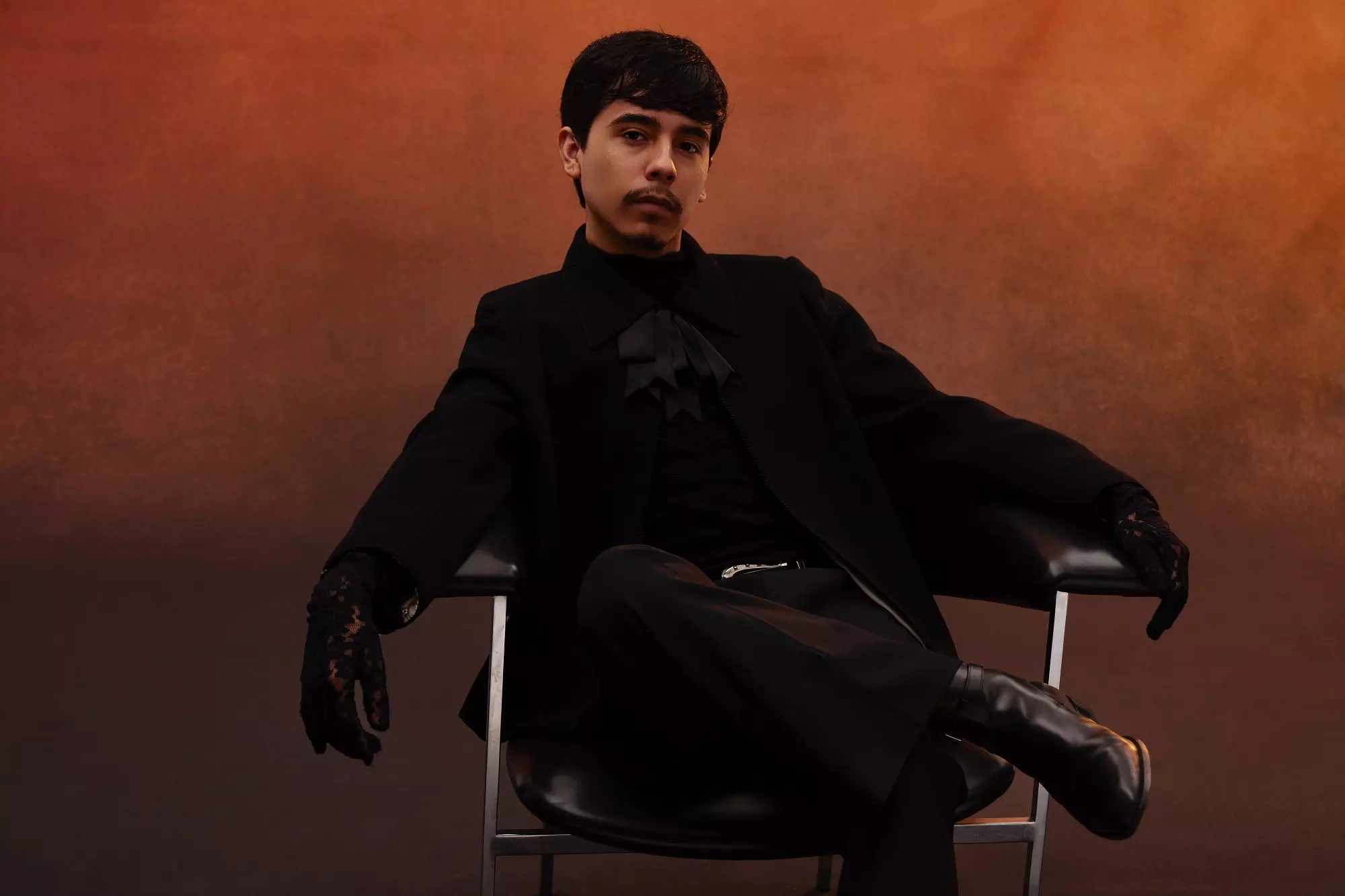
On 'Mirada,' Ivan Cornejo Redefines The Sound Of Sad Sierreño And Helps Fans Heal Through Music
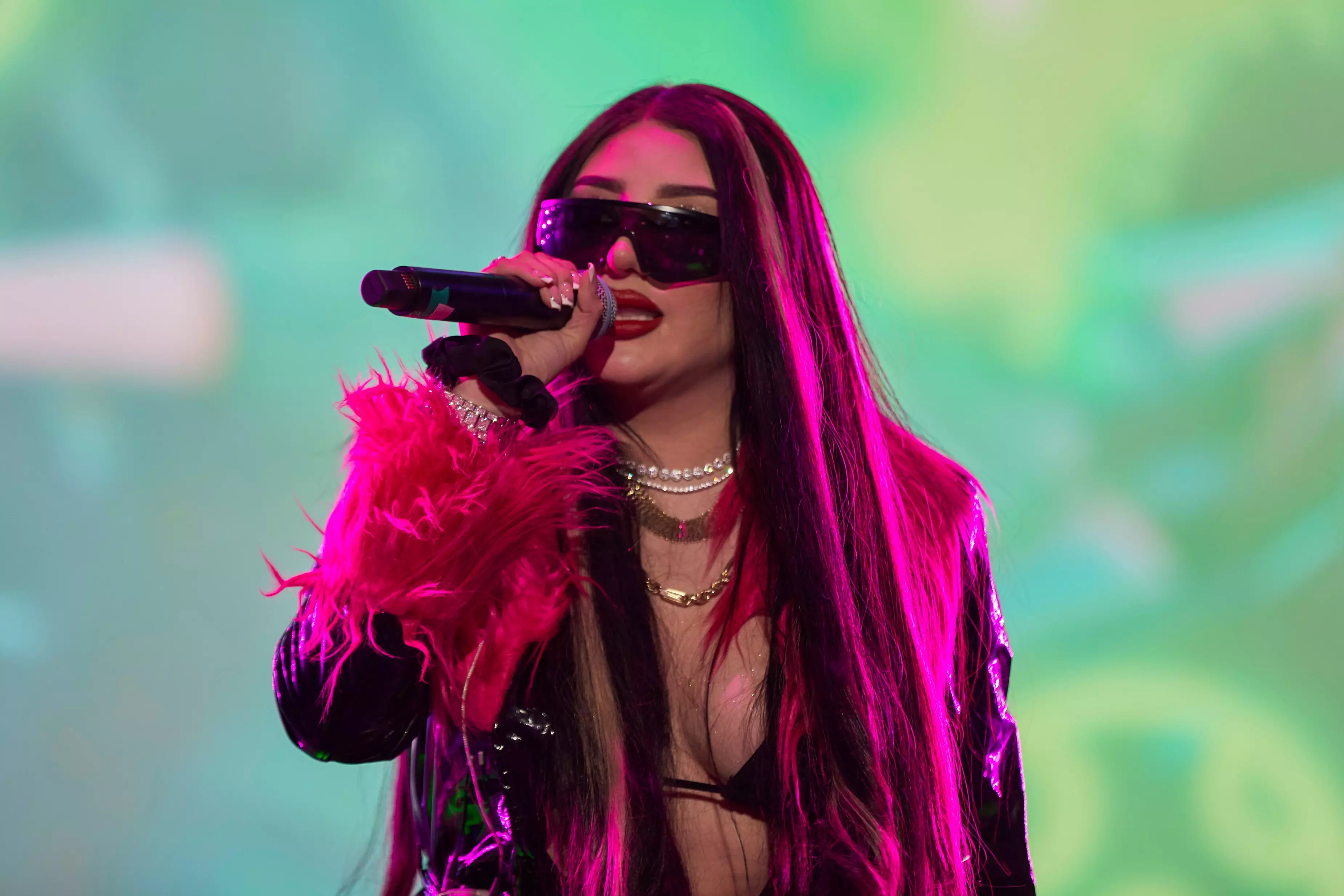
7 Artists Bringing Reggaeton Mexa To The World: El Malilla, Bellakath & More
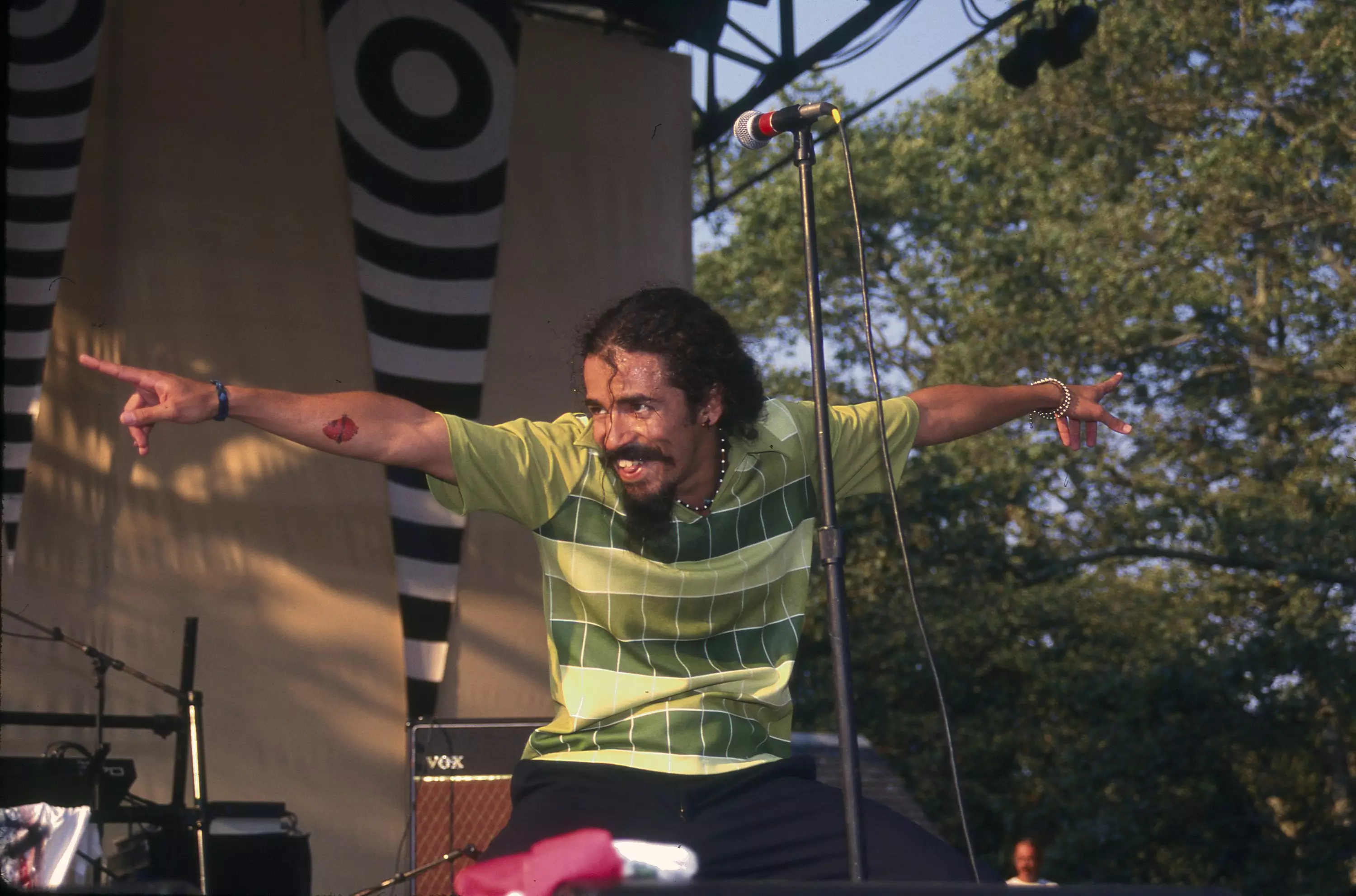
Revisiting 'Re': How Café Tacvba’s 1994 Masterpiece Changed Mexican Music Forever
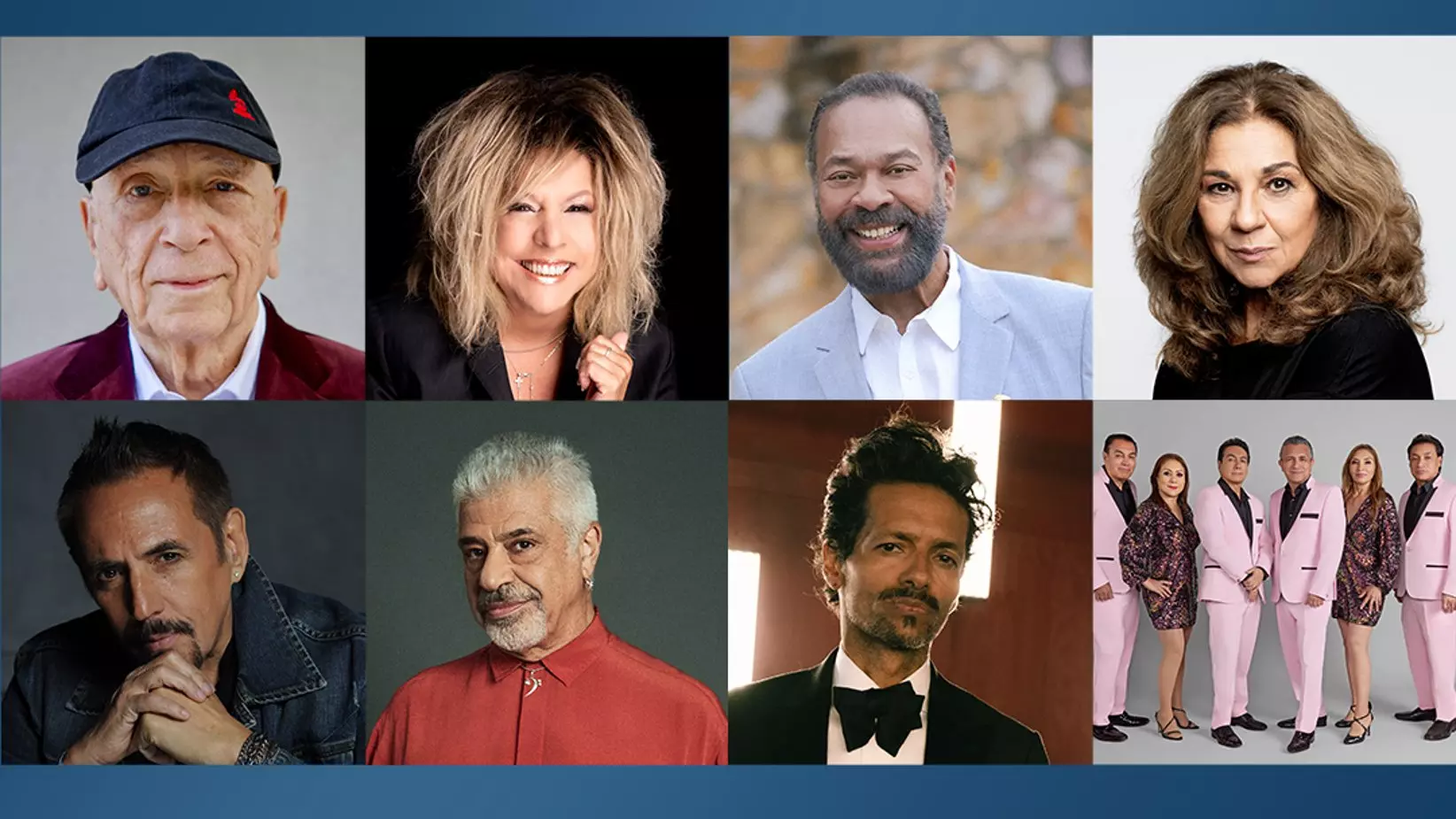
The Latin Recording Academy Announces 2024 Special Awards Recipients: Los Ángeles Azules, Draco Rosa, Albita, Lolita Flores & More
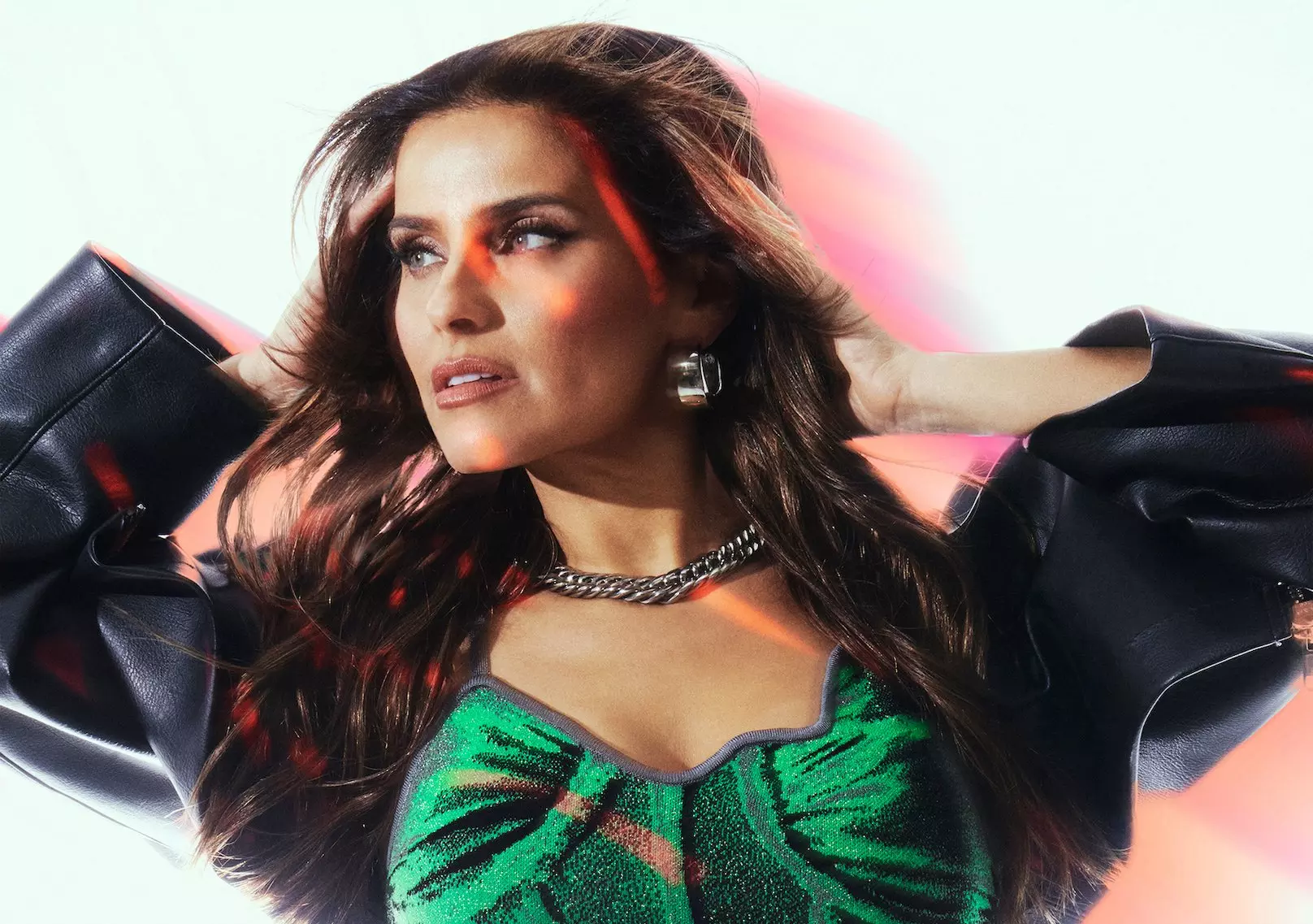
Nelly Furtado On How Remix Culture, ADHD & Gen Z Inspired Her New Album '7'
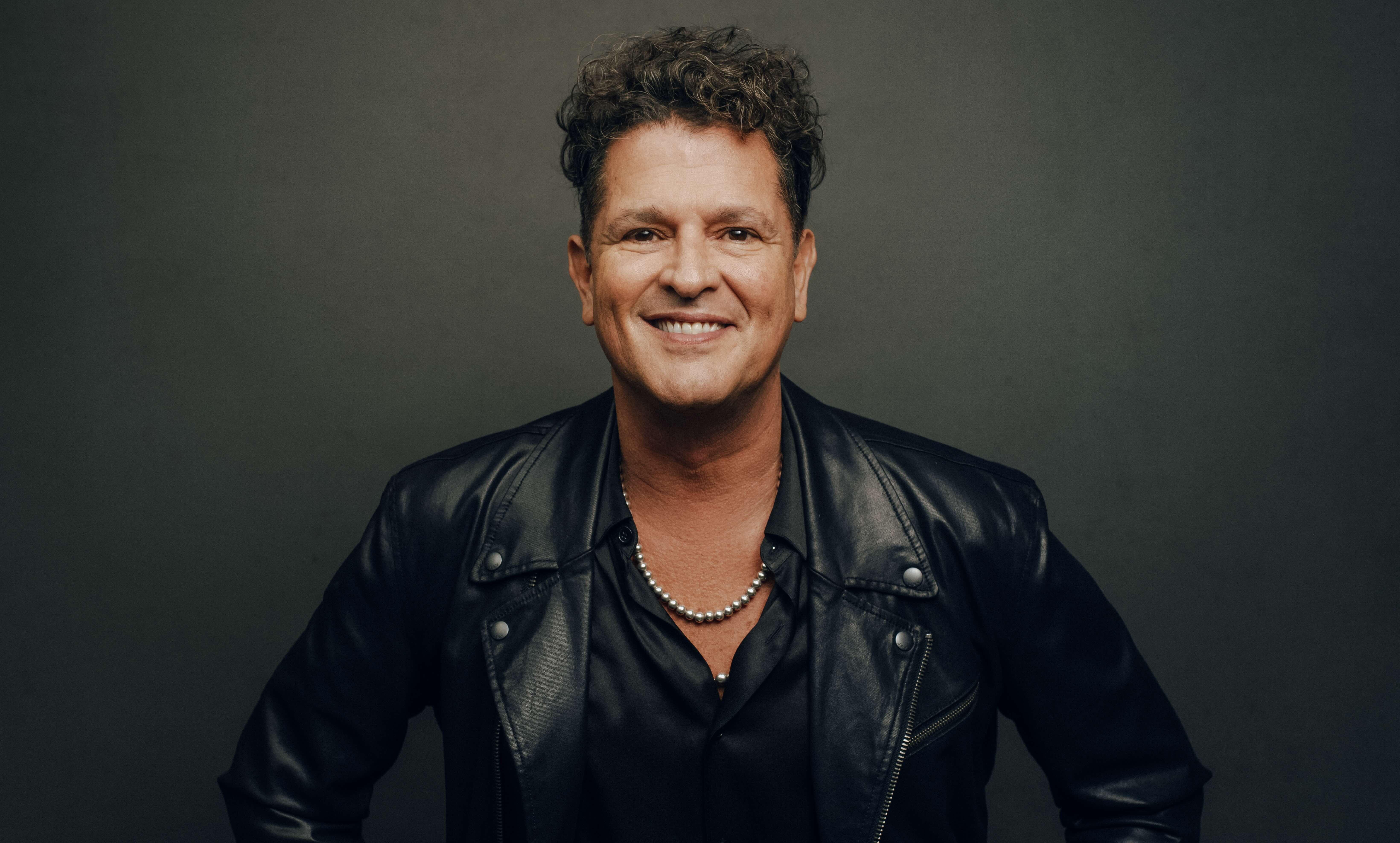
Photo: Natalia Gw
news
Carlos Vives Named The 2024 Latin Recording Academy Person Of The Year: What To Know About The Latin Music Icon
Vives will be honored at a star-studded gala leading up to the 2024 Latin GRAMMYs, which this year marks the 25th anniversary of the Latin GRAMMY Awards.
The Latin Recording Academy today announced that 18-time Latin GRAMMY winner and two-time GRAMMY winner Carlos Vives will be the 2024 Latin Recording Academy Person of the Year. He will be honored at a star-studded gala leading up to the 2024 Latin GRAMMYs, which this year marks the 25th anniversary of the Latin GRAMMY Awards.
The heartfelt tribute concert will honor Vives' celebrated career, which spans more than 30 years as a multifaceted singer and composer, and will feature renditions of his renowned repertoire performed by an array of notable artists and friends. In addition to his achievements in music, the 2024 Latin Recording Academy Person of the Year gala will honor Vives' continued commitment to environmental and social initiatives.
Details about the coveted event, which takes place during the 2024 Latin GRAMMY Week in Miami, will be announced at a later date.
An architect of Latin music's ongoing evolution and global expansion, Carlos Vives is one of the most respected artists in Spanish-language music around the world. He helped pioneer a new Latin American sound, redefining traditional Colombian vallenato by incorporating pop and rock. The first Colombian to win a GRAMMY Award, he boasts more than 10 billion streams on digital platforms, 20 million albums sold, and enduring hits like "La Gota Fría," "Pa' Mayte," "La Tierra Del Olvido," "Fruta Fresca" and "Volví A Nacer."
Vives has become an ambassador of Colombian and Latin American culture around the world, and his commitment also transcends the musical realm. In 2015, he created the Tras La Perla initiative to promote the sustainable development of Santa Marta and its ecosystem.
In addition, he created the Escuela de Música Río Grande to offer artistic experiences to children and young people and founded the record label Gaira Música Local to promote new Colombian talent. As part of his ongoing commitment to music education, Vives has been a strong advocate and generous supporter of the Latin GRAMMY Cultural Foundation since its inception and sponsored its annual Prodigy Scholarship in 2018.
"Carlos Vives is one of the most prolific and beloved artists of our time, whose commitment to Latin music and support for the new generations truly personifies the values of our Academy," Latin Recording Academy CEO Manuel Abud said in a statement. "We honor him as our Person of the Year for his vast contributions to our musical heritage and for his many philanthropic initiatives."
"I am honored and moved to have been chosen as the 2024 Latin Recording Academy Person of the Year. It is the reward for an authentic journey, for a wonderful team, and, above all, it is the recognition of the musical spirits of our Latin American diversity," Vives said in a statement. "These spirits taught us to love and enrich our language, to take care of it, and to respect it in order to exalt humanity with it."
The Latin Recording Academy Person of the Year honors musicians and their artistic achievements in the Latin music industry as well as their humanitarian efforts. The past honorees are Laura Pausini (2023), Marco Antonio Solís (2022), Rubén Blades (2021), Juanes (2019), Maná (2018), Alejandro Sanz (2017), Marc Anthony (2016), Roberto Carlos (2015), Joan Manuel Serrat (2014), Miguel Bosé (2013), Caetano Veloso (2012), Shakira (2011), Plácido Domingo (2010), Juan Gabriel (2009), Gloria Estefan (2008), Juan Luis Guerra (2007), Ricky Martin (2006), José José (2005), Carlos Santana (2004), Gilberto Gil (2003), Vicente Fernández (2002), Julio Iglesias (2001), and Emilio Estefan (2000).
Net proceeds from the Latin Academy Person of the Year Gala will go toward the charitable work of the Latin GRAMMY Cultural Foundation.
The 2024 Latin Recording Academy Person of the Year gala will take place days ahead of the 2024 Latin GRAMMYs, which take place Thursday, Nov. 14, in Miami at Kaseya Center, in partnership with Miami-Dade County and the Greater Miami Convention & Visitors Bureau (GMCVB). The nominations for the 2024 Latin GRAMMYs will be announced Tuesday, Sept. 17.
This year, the Latin Recording Academy will introduce two new Latin GRAMMY categories and a new field: Best Latin Electronic Music Performance, housed within the new Electronic Music Field, and Best Contemporary Mexican Music Album (Regional-Mexican Field). These additions also include several changes, including additional category amendments, to be added to the 2024 Latin GRAMMY Awards Process.
8 Essential Latin Electronic Releases: Songs And Albums From Bizarrap, Arca & More
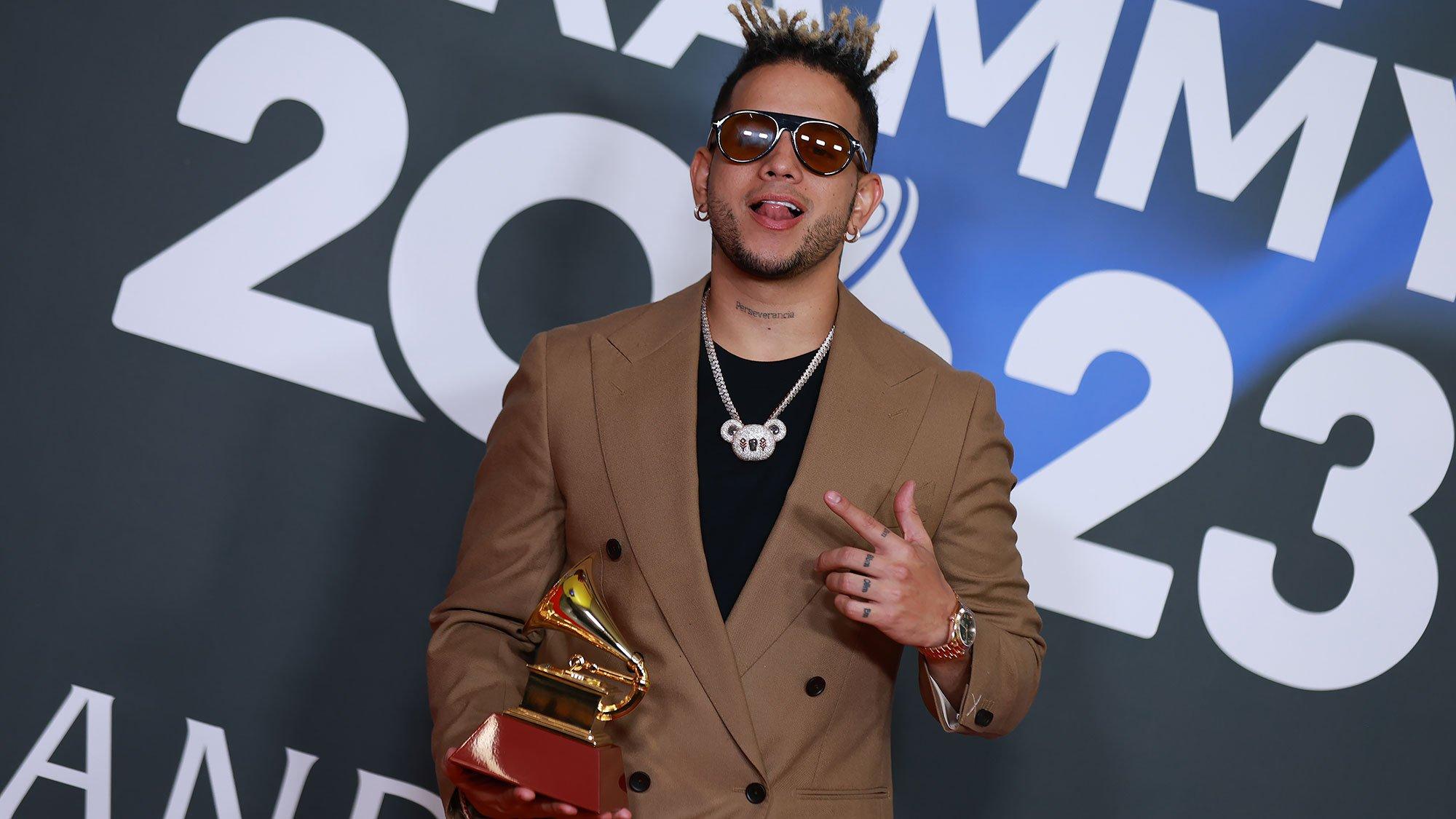
Photo: Patricia J. Garcinuno/WireImage/GettyImages
interview
Producer Ovy On The Drums Talks New EP With Myke Towers & The Indescribable Chemistry Of Working With Karol G
"I just wanted to make some good music with a well chosen set of guest artists, and let the beats speak for themselves," Ovy on the Drums says of his new EP with Myke Towers.
When Mañana Será Bonito, the fourth studio album by Karol G, came out in February 2023, its release had been preceded by two momentous hit singles that changed the face of Latin music.
Panoramic in scope, slick and airy, but also imbued with an intense and lyrical emotional depth, the songs "Provenza" and "Cairo" combined pop, reggaetón and an alternative edge with panache, and confirmed the Colombian singer/songwriter as one of the biggest pop stars in the planet. Mañana Será Bonito would go on to win Latin GRAMMYs for Album Of The Year and Best Urban Music Album, as well as her first-ever GRAMMY for Best Música Urbana Album in 2024.
Karol G wasn’t alone in these accomplishments. Most of the songs on the album were helmed by her longtime producer, Ovy on the Drums. Like Karol herself, 33 year-old Daniel Echavarría Oviedo hails from Medellín. The pair started working together at the very beginning of their careers, and Ovy was behind the haute couture sonics of "Tusa," the 2019 collaboration with Nicki Minaj that first established Karol as a major contender in Latin pop.
"There is a chemistry when we work together that I cannot quite describe with words," Ovy says over Zoom from his home in Florida. It’s a weekday morning, and he sits by his keyboard producing station; from time to time, he will play imaginary chords as he searches for the right words for an answer. His attitude remains humble throughout the conversation — even after significant success and a triumphant world tour, where he accompanied Karol on most concert dates.
"I still remember the specific moment when I asked her if she would let me do production work with her," he tells GRAMMY.com. "We keep talking whenever we’re in the studio. She is very clear in her direction; ‘I want this song to sound like that,’ or, ‘Give it another spin and see if we can make it better.’"
Ovy has since been inspired to branch out into different challenges. The latest one is Cassette 01, a six-song EP with Puerto Rican A-list rapper Myke Towers. The EP is the first in a series of cassette-themed mixtapes that will include a different collaborator on each new installment. "The concept of releasing cassette-themed EPs in the year 2024 is really exciting to me," Ovy says. "It’s linked to the history of pop music, and the way we consume songs."
Known for high-voltage, sexed-up urbano anthems like "La Playa" (2020) and "LALA" (2023), Towers adds his imprint to the songs, but Ovy’s futuristic aesthetic is all over the EP. "It’s true that the loop in the beginning has my personal touch," Ovy says with a laugh when I point out that the intro to "AMOR NARCÓTICO" is trademark Ovy. "Sometimes people tell me that a song has that unique touch of mine, and it really seems unbelievable to me when I hear it."
On "BELLAQUERÍA," he mixes synth patches with real riffs performed by his longtime guitar player; the contrast between organic and digitized is prevalent in his stylistic panoply. And his trademark battle call — the almost dub-like cry of "O-O-O-vy on the Drumsss" is the seal of distinction that pops up in every single production.
Ovy on the Drums and Myke Towers┃SEBA
Musically speaking, Colombia sits on a highly strategic place: next door to the fertile Caribbean islands where reggae, salsa, merengue and calypso originated — but also close enough to the airwaves of mainstream American pop. Growing up, Ovy listened to a bit of everything, and gravitated naturally to lush records with majestic grooves.
"I loved Bob Marley as a kid," he says. "At home, of course, they would play a lot of salsa at parties, and hits of the time like 'Mayonesa' [a tropi-pop smash by Uruguayan band Chocolate.] I was also crazy about Modern Talking’s ‘Brother Louie’ and the Pet Shop Boys’ ‘Go West.’ Those are the songs that defined my childhood."
In the meantime, he continues employing FL Studio — the same producing software that he used at the very beginning of his journey.
"I’ll never stop using it," he promises. "I just can’t see myself on another platform. I used to dream about meeting the software creators, and now they follow me on Instagram and gave me every available plug-in. I’ve been producing music for the past 11 years, and I think I only know a good half of everything there is to learn on FL."
Collaborating with other high-profile artists and finishing up a promised solo album are high on Ovy's priority list.
"At the beginning, I was trying to turn my solo project into a conceptual work — but that’s easier said than done," he admits. "In the end, I realized that I just wanted to make some good music with a well chosen set of guest artists, and let the beats speak for themselves. I’d say my solo album is about 50 percent done at this point."
Karol G recently released "CONTIGO," a Euro-leaning, pop-EDM single with Tiësto. It remains to be seen if the diva will rely as tightly on her usual partner in crime as she begins work on her upcoming fifth album.
"When she had some free time off touring, I happened to be busy with the CASSETTE project," Ovy says. "Since then, we connected again and have been recording a bunch of songs. But I can’t really tell what will happen on the next album. And I think it’s good that Karol is collaborating with other producers and composers, searching for different avenues and sounds. We’re definitely on the same page in allowing things to happen the way they are supposed to."
He pauses for a moment, then adds with an extra wave of enthusiasm:
"I will always be there for her. Our common objective hasn’t really changed. We must always work hard, and come up with cool new songs."
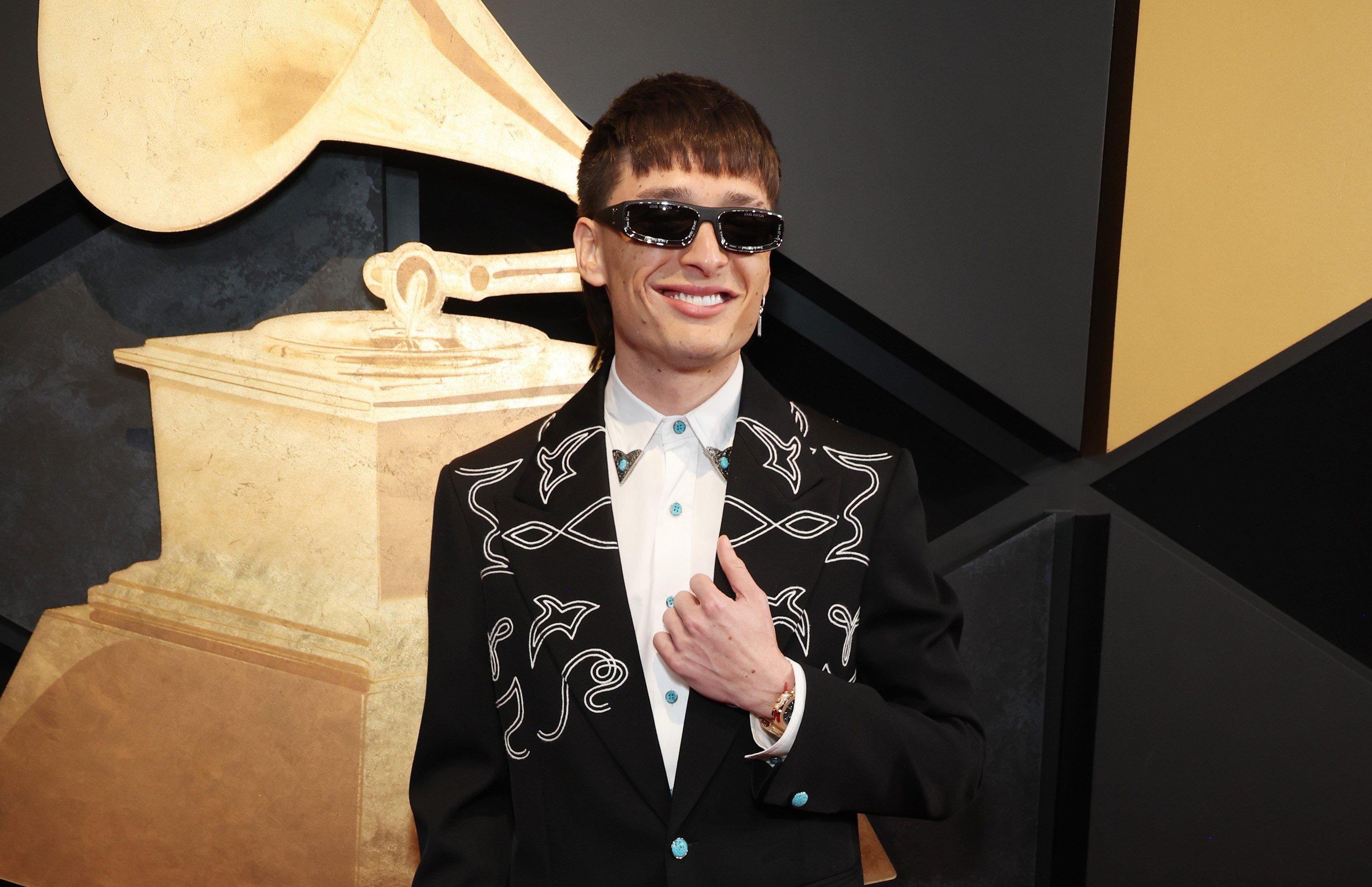
Photo: Lester Cohen/Getty Images for The Recording Academy
news
How The Latin GRAMMYs Brought Latin Music Excellence To The 2024 GRAMMYs
Latin music was celebrated throughout GRAMMY Week and on Music's Biggest Night. Read on for the many ways Latin music excellence was showcased at the 204 GRAMMYs.
The 2023 Latin GRAMMYs may have occurred months ago and thousands of miles away, but the leading lights in Latin music also shined at the 66th GRAMMY Awards. From historic wins and meaningful nominations, to electric performances and interesting installations, Latin music excellence was everywhere.
In anticipation of the 25th anniversary of the Latin GRAMMYs in 2024, the exclusive GRAMMY House — the site of multiple GRAMMY Week events — included a significant installation dedicated to the Biggest Night In Latin Music.
The cylindrical display showcased some of the biggest moments in Latin GRAMMY history, including images, facts, and even a real Latin GRAMMY award.
The celebration of Latin music continued throughout GRAMMY Week, with several Latin GRAMMY-winning artists also winning on the GRAMMY stage. Among the major moments at the 2024 GRAMMYs, Karol G won her first golden gramophone for her 2023 LP Mañana Será Bonito. "This is my first time at GRAMMYs, and this is my first time holding my own GRAMMY," the Colombian songstress exclaimed during her acceptance speech.
Música Mexicana star Peso Pluma also took home his first GRAMMY; his album GÉNESIS won in the Best Música Mexicana Album (Including Tejano) Category.
Premiere Ceremony presenter Natalia Lafourcade — whose Todas Las Flores won big at the 2023 Latin GRAMMYs — also took home the GRAMMY Award for Best Latin Rock or Alternative Album. She tied in the Category with Juanes.
Premiere Ceremony performer Gabby Moreno also took home a GRAMMY Award for Best Latin Pop Album for her album X Mí (Vol. 1).
Beyond the stage, Latin artists graced the red carpet and the nominations list. For example, producer and songwriter Edgar Barrera was the only Latino nominated in the Songwriter Of The Year, Non-Classical Category.
